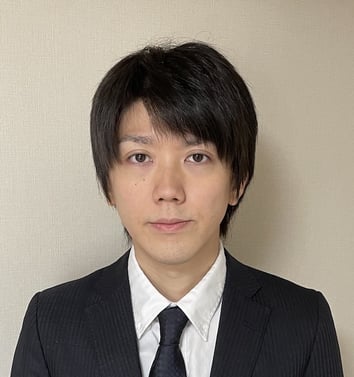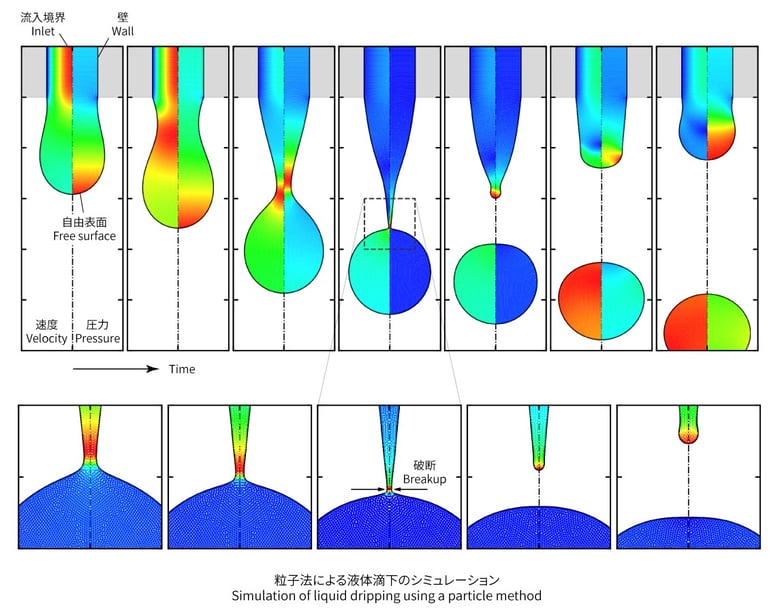Share this
Young Faculty / 083
Lecturer Takuya Matsunaga, Okuda-Matsunaga Laboratory, Department of Human and Engineered Environmental Studies, Graduate School of Frontier Sciences & Department of Systems Innovation

< Biography >
Mar. 2016 : Dr. Eng., Department of Systems Innovation, Graduate School of Engineering, The University of Tokyo
Apr. 2016 - Mar. 2019 : Research associate, Department of Systems Innovation, Graduate School of Engineering, The University of Tokyo
Apr. 2019 - Mar. 2020 : Project research associate, Department of Systems Innovation, Graduate School of Engineering, The University of Tokyo
Apr. 2020 - Mar. 2022 : Research associate, Department of Systems Innovation, Graduate School of Engineering, The University of Tokyo
Apr. 2022 - Present : Lecturer, Department of Human and Engineered Environmental Studies, Graduate School of Frontier Sciences, The University of Tokyo
< About the research >
We study fluid flow simulation using the particle method. There are various methods for analyzing the continuum mechanics. Those that do not require a computational mesh (grid) for spatial discretization of the partial differential equations are generally referred to as particle methods or meshfree methods. Although particle methods are still a relatively immature numerical method, they have been gaining attention due to their effectiveness in addressing complex problems such as flows involving violent fluid-gas interfaces and flows driven by objects. Their applications are also expanding in industry.
In our laboratory, we are conducting research on the development of computational algorithms for particle methods and their applications. In the past, the accuracy of the particle method was low, and some people questioned the reliability of the calculation results. However, recent research has led to the development of new particle methods with improved accuracy through comprehensive reevaluation of computational algorithms at a fundamental level. Our laboratory is studying the state-of-the-art of the accurate particle methods and is challenging the unexplored areas of computational mechanics by further pursuing numerical techniques and making full use of high-performance computing environments.

While a deep understanding of theories in mathematics and mechanics is essential in this research field, we believe that what is even more important is a flexible mindset free from preconceptions and the ability to persevere and concentrate over time on a difficult problem. We look forward to working with people who want to tackle challenging issues with intellectual curiosity.
< Future Aspirations >
Our mission is to contribute to the realization of a prosperous and sustainable society. We will continue to challenge the frontier of computational mechanics.
< URL >
Okuda-Matsunaga Laboratory:http://www.multi.k.u-tokyo.ac.jp/indexen.php
These Related Stories


